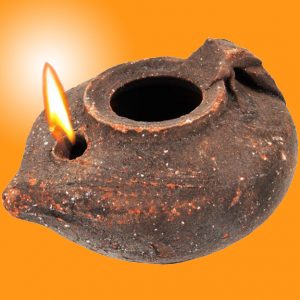A homily for the Thirty-Second Sunday in Ordinary Time, Nov. 8, 2020
Wis 6:12-16, 1 Thes 4:13-18, Mt 25:1-13
Imagine, if you will, that you’re standing at the train station waiting for the 5:14 to New York, and it’s 5:12 p.m. Where are you looking? At your watch or smartphone? Randomly, all around?
Maybe.
But the odds are good that you’re looking up the tracks in the direction your train will be coming from. You want to see the train coming. You want to be ready when it arrives … as if you weren’t already ready to climb aboard.
Because getting ready for something/anything is a big part of the waiting process. Especially if we know when something/anything is going to happen, or at least when it’s supposed to happen.
If we’re traveling, do we have our ticket? Luggage? Address of the destination, or even a map or GPS coordinates if the destination is unfamiliar?
(And if we’re traveling — which, philosophically and theologically, we always are — are we in the here and now, or are we already at our destination in mind and spirit? (Actually, that’s a long side conversation.) Anyway….)
Yes, the more details we have, the better we can get ready for the something/anything, and then act appropriately when it happens.
But life doesn’t always work that way, as our packed-to-the-gills Gospel today tells us.
We unpack this Scripture passage starting from the end, the ever-familiar admonition that we traditionally interpret as “Be prepared, for you never know.” And if ever a chunk of The Word had applications for today’s pandemic-burdened world, this line is it.
We don’t know when this coronavirus will be behind us. We don’t know how the bug will be banished, and we have nary a clue what New Normal is going to be. No, we just don’t know. And that makes the task of waiting and preparing immeasurably harder.
This waiting game will involve false starts, false alarms, abrupt reversals, tiny tweaks and long stretches of fingernail-biting. Knowing neither the day nor the time when the pandemic can be declared over makes the waiting all the more difficult.
As long as there’s a definite end or finish line — the train’s arrival or the counting of ballots come to mind — we can persevere through periods that lack crystal clarity as long as we tap into the wisdom that God offers us. Having a fuzzier resolution, such as this outbreak does, requires more. It takes patience, faith and hope alongside wisdom.
Speaking of wisdom…
Today’s parable challenges us to be wise like The Five who had enough oil to light the way for the groom when he arrived. The Boy Scout Motto Gospel, if you will. OK, that’s sensible enough.
But there’s a huge failing of charity and justice — and wisdom — in how The Wise Five acted.
 First, if these bridesmaids knew each other, then why didn’t The Wise Five advise the others to tank up on oil? Wisdom involves a sense of what’s happening around us, and charity and justice demand that we act to fix what we see.
First, if these bridesmaids knew each other, then why didn’t The Wise Five advise the others to tank up on oil? Wisdom involves a sense of what’s happening around us, and charity and justice demand that we act to fix what we see.
So there’s that.
And regardless of whether they did or didn’t know each other already, why didn’t The Wise Five have any extra oil, enough to share? Elsewhere in Matthew’s Gospel and in Luke’s, Jesus advises anyone who is told to give someone else his shirt to give the other person his coat as well. That the Christian way is to go above and beyond. We’re all challenged, therefore, to have enough to share whenever it’s humanly possible.
Were the lamps lit before all 10 of them dozed off? Did they burn out? Is that why the young women needed to refill and light up again? It’s not totally clear from this passage, but it would have been unwise for any of them to light their lamps before they knew the groom was near. You don’t step to the edge of the platform before the train arrives. You don’t illuminate an empty passageway.
Why didn’t someone — it didn’t have to be all of The Other Five — go buy more oil sooner? And if they ended up with more oil than they needed, it wouldn’t go bad. Lamps were useful for more than wedding feasts.
Then there’s the feast. When The Other Five finally got there, the groom — symbolically the gatekeeper to the Kingdom of God — told them to scram. “I do not know you.” That seems a harsh reply to invited guests. They made a mistake and did what they could to fix it — getting more oil — so where’s the forgiveness and mercy?
And finally, there’s the precise text of the admonition:
Therefore, stay awake,
for you know neither the day nor the hour.
So after we’ve heard all about bringing enough oil vs. not enough, about not being fully present at a critical moment in our lives, about losing our ticket to the big banquet because somehow we were ill-equipped, the key phrase actually winds up having little to do with preparedness and a whole lot more to do with awareness.
All 10 of them dozed off. All 10 of them snapped to attention when somebody hollered that the groom was coming. Until the moment they realized that only half of them could light up, they all were the same. None had stayed awake. The preparedness of The Wise Five ultimately gave them an edge, but they just as easily could have slept through the party as The Other Five could have if nobody roused them.
Preparedness and awareness; awareness and preparedness.
Aha: Together, they are greater than the sum of their parts.
So in the end, clutching our tickets and luggage, all of us do have to watch for the 5:14 train, lest we miss it.
About the translation…
Today’s Gospel passage tosses around the — to my mind — highly antiquated and highly sexist “virgins” instead of “bridesmaids” or “bridal party” that other lectionaries prefer. I don’t know why this persists unless there’s a hidden agenda holding up virginity as the wise option.
I do know that, as I proclaimed this Gospel in Church this weekend, I did cringe a bit.

There is a Girl Scout Motto also
The Girl Scout Promise
On my honor, I will try:
To serve God and my country,
To help people at all times,
And to live by the Girl Scout Law.
The Girl Scout Law
I will do my best to be
honest and fair,
friendly and helpful,
considerate and caring,
courageous and strong, and
responsible for what I say and do,
and to
respect myself and others,
respect authority,
use resources wisely,
make the world a better place, and
be a sister to every Girl Scout.
In this weekend when a woman was obviously quite prepared to pave the way, it would be appropriate to acknowledge it.
I am delighted that Kamala Harris has broken through. My reference to the Boy Scout motto–Be Prepared–was intended strictly as a shorthand reference and not an endorsement of the organization or the gender.